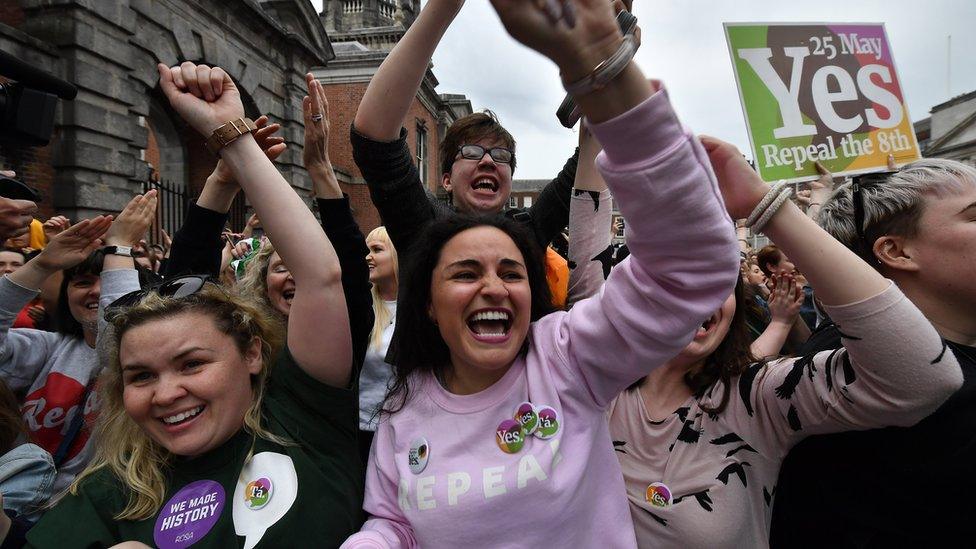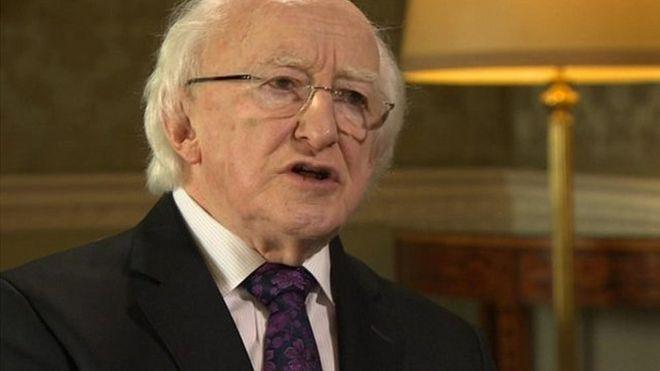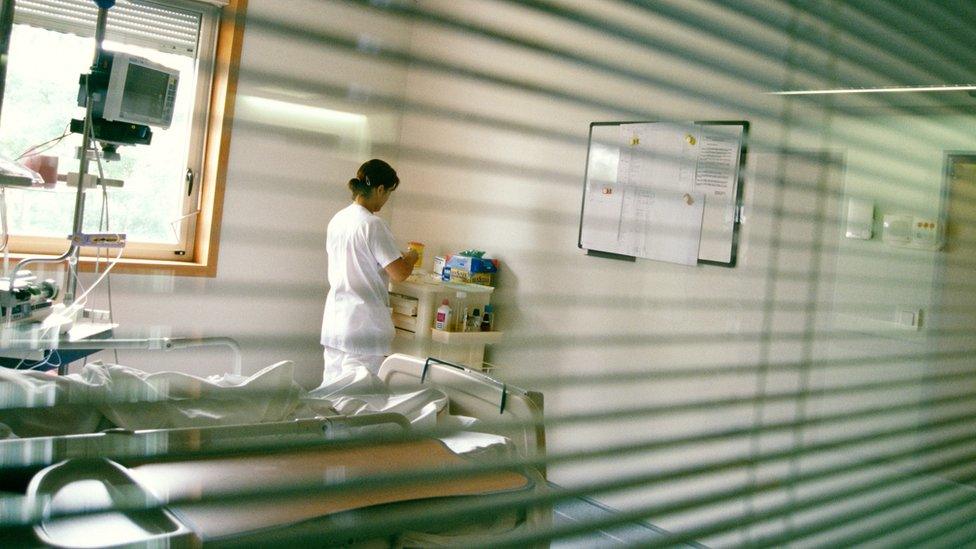Irish parliament debates bill to legalise abortion
- Published

Voters overwhelmingly backed repealing the ban on abortion in Ireland on 25 May
The Irish parliament is debating a bill to legalise abortion services in the country.
It is the first time the Irish parliament has addressed the issue since the Eighth Amendment - a near total constitutional ban on abortion - was removed.
The country voted to overturn its abortion ban in a referendum in May.
Health Minister Simon Harris hopes abortion services will be available in the country from January.
The Regulation of the Termination of Pregnancy Bill allows for abortion services to be provided, external "on demand" up to the 12th week of a pregnancy, in the case of a fatal foetal abnormality or where the physical or mental health of the mother is in danger.
Taoiseach (Prime Minister) Leo Varadkar and Mr Harris have both said they expect services to be up and running in Ireland by early next year.
Mr Harris has said that terminations would be made available free of charge, as part of a GP-led service.
Introducing the bill in the Dail, Mr Harris said the referendum was a resounding affirmation of support for right of women to make choices about their lives.
"It was a reaffirmation of the primacy of equality in our modern democracy and it was also a call for us to do more," he said.
"More on women's health, women's equality, more on continuing to shape an inclusive and equal society."
What happens next?
The bill must be passed by the Irish parliament and the Irish senate before it officially becomes law.

Two-thirds of voters supported a change to the law banning abortion
Anti-abortion TDs have said they want to table amendments to the legislation. The health minister has said he will not accept them as the Irish people gave a clear mandate "to get on with it", external when they voted to overturn the abortion ban by 66.4% to 33.6%.
Separate legislation will be introduced at a later date to allow for "safe access" zones - designated areas that prevent protests around centres providing abortion services.
The government must work with doctors to implement services and provide training and support. Dr Mary Favier, founder of Doctors for Choice, told the Irish Times that planning for abortion by the Department of Health had been "a shambles". , external
"There's been no clinical lead appointments. There's been no technical round tables established. There's been effectively no meetings held," she said.
Mike Thompson, a GP in east Cork told the BBC the the government's proposed timeline of January 2019 was "ambitious" and "challenging."
"Unless there is a clear and robust guidelines, no GP will provide the service. It has to be safe."
Doctors objecting
Earlier, a row broke out over conscientious objection, as anti-abortion doctors said they did not wish to be forced to refer a pregnant woman seeking a termination to another doctor.
The bill allows for doctors to opt out of providing a medical or surgical abortion if they do not wish to perform the procedure. But they must refer a woman seeking an abortion to another doctor who will carry it out.
Anti-abortion doctors have lobbied the government, external to remove any requirement to transfer women seeking a termination to another doctor.
Dr Kirsten Fuller, spokesperson for Doctors for Freedom of Conscience estimates that "several hundred" doctors objected to this.
She told the BBC: "We don't want to thwart the referendum result, we're just asking that we're given freedom of conscience in the truest form where we don't have to refer to another doctor."
"Abortion is the ending of a human life and we don't want to partake in that in any sense."
"We want to continue to give compassionate care to all mothers and their children," she said.
The health minister said that conscientious objection was one thing, but refusing to refer women wishing to terminate their pregnancies to other doctors was quite another.
Allow X content?
This article contains content provided by X. We ask for your permission before anything is loaded, as they may be using cookies and other technologies. You may want to read X’s cookie policy, external and privacy policy, external before accepting. To view this content choose ‘accept and continue’.

Has conscientious objection worked elsewhere?
Abortion has been legal in Italy, a predominantly Catholic country, since 1978, but it can be difficult for women to access the procedure there.
The proportion of Italian gynaecologists refusing to carry out abortions in 2013 was 70%, according to Italian government figures. In southern Italy the proportion was even higher and in Sicily it was 87.6%.
In 2014, a Polish doctor was sacked after refusing to perform an abortion on faith grounds.
Two Roman Catholic midwives in Scotland lost a legal battle in 2012 to avoid taking part in abortion procedures because of their conscientious objections.
It is unclear how a small number of GPs objecting will affect the rollout of services in Ireland.
- Published18 September 2018

- Published26 May 2018

- Published20 October 2016

- Published9 July 2014